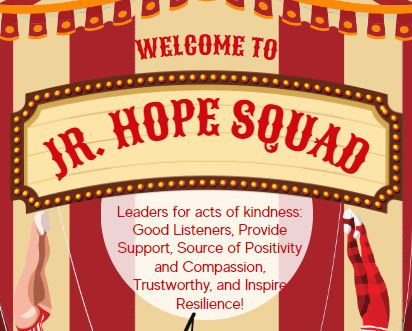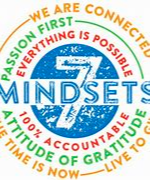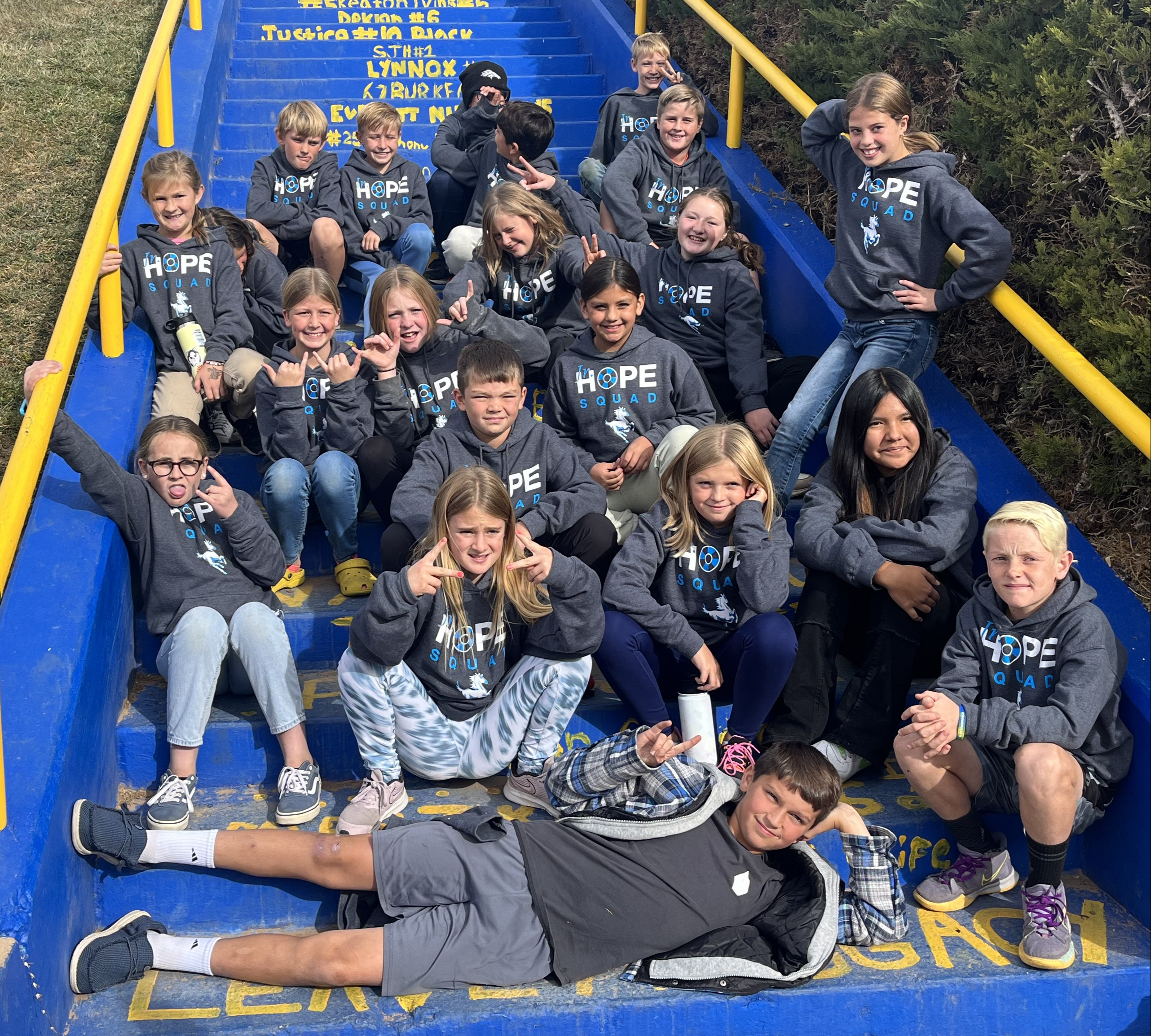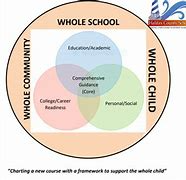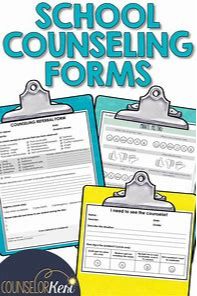
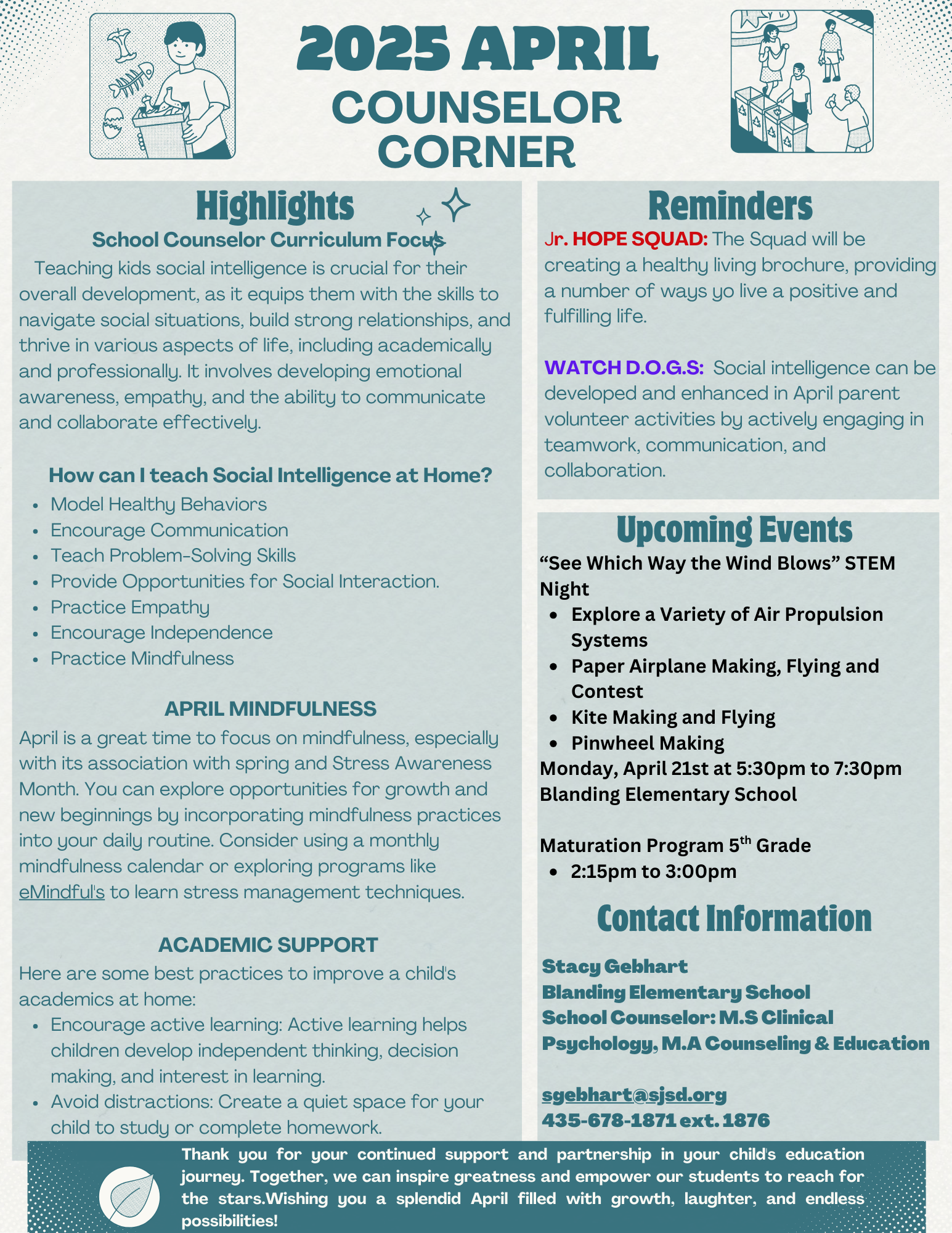
The Jr. Hope Squad would like to extend a huge thank you to the amazing B.E.S. teachers who contributed their students creative Christmas decorations allowing them to decorate the tree at Zions Bank. Your beautiful Christmas decorations truly made the tree shine!
We also want to express our gratitude to the 5th-grade teachers for your patience, time, and unwavering support. Your help was instrumental in making our trip this morning a success. A special thank you to Zions Bank for their generous $100 donation, which made this experience possible.
We couldn't have done it without all of you! Wishing you a wonderful and blessed holiday season.
Sincerely,
The Jr. Hope Squad

On Friday, February 28th, the Jr. Hope Squad had the privilege of walking to the Four Corners Regional Care Center to present the residents with beautifully crafted Valentine’s Day cards. These cards were filled with warm and loving messages, creating an uplifting experience for both the students and the residents. It was truly a special occasion, as it allowed the students and residents to build a deeper connection and understanding. The smiles on the residents' faces were unforgettable, and the students were deeply grateful for the opportunity to interact in such a meaningful way.
I wholeheartedly encourage everyone to visit the Four Corners Regional Care Center and share in a similar, rewarding experience.
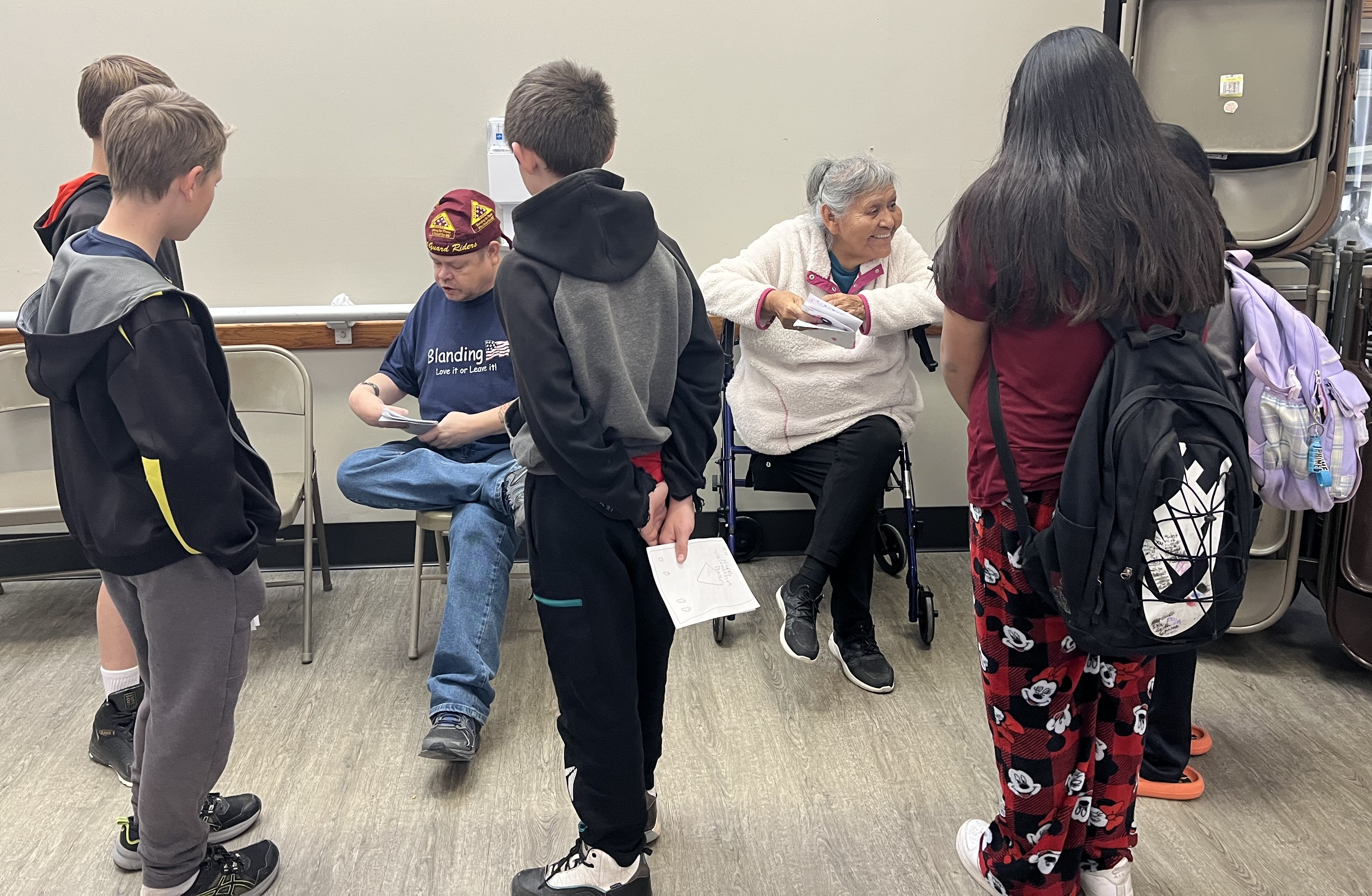


Jr. Hope Squad Big Brother and Sisters
The peer mentoring program helps both the mentor and mentee develop improved reasoning and communication skills, academic achievement, life skills, reduced risky behaviors, reduce isolation and improve school attendance just to name a few. Additionally, this program is designed to be a safe place where students can talk about the challenges they face, their feelings, their questions, their opinions and their successes with their peers. The structure of this advantageous program includes the following:
Grades 1-3 teachers will nominate a student, they feel can benefit from having Big Brother or Sister
support.
Parent Permission Form: https://drive.google.com/file/d/1o_x-bpBc9d9pHuS9F_UMfXYYUPKLMhsP/view?usp=sharing
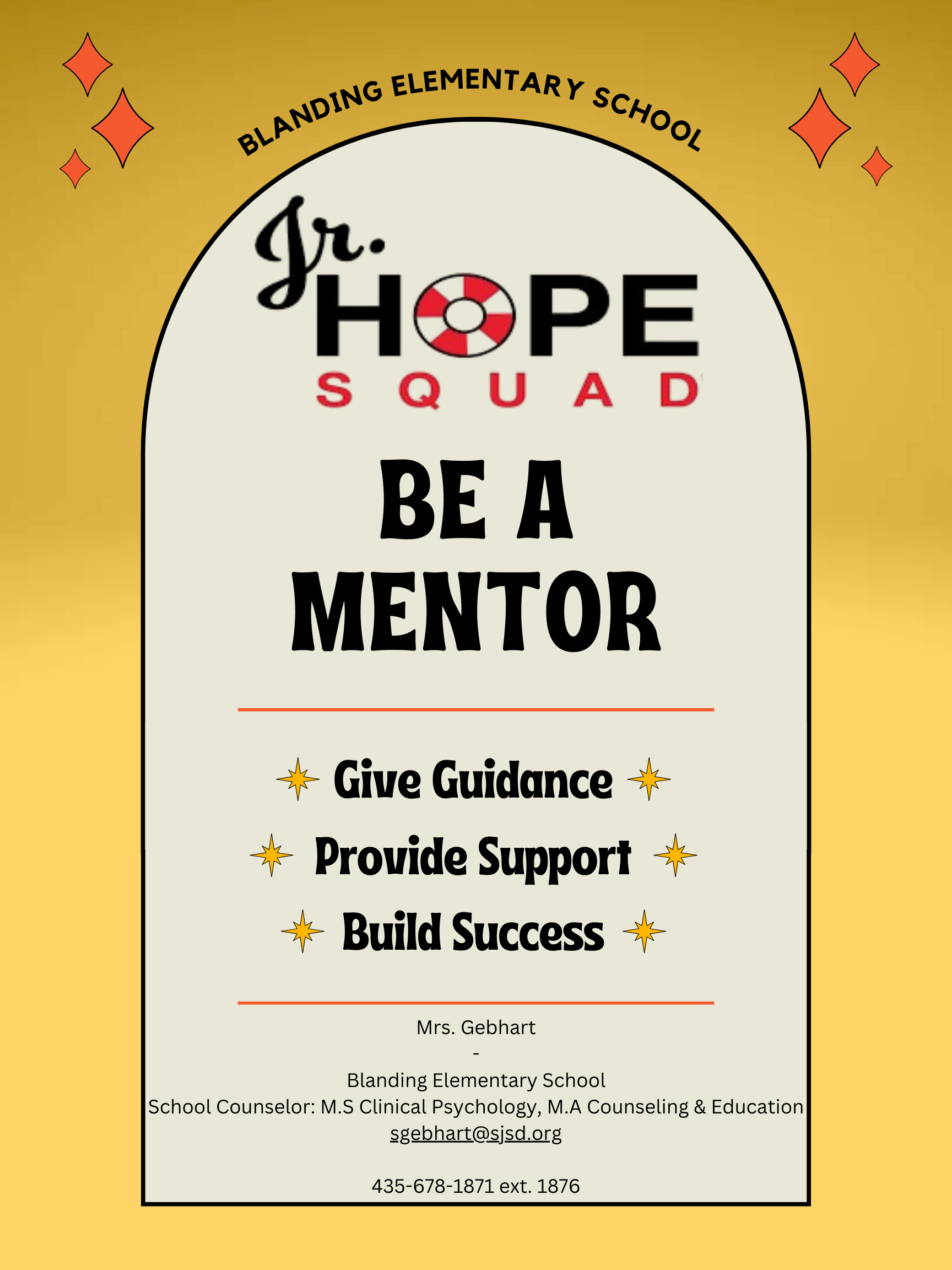
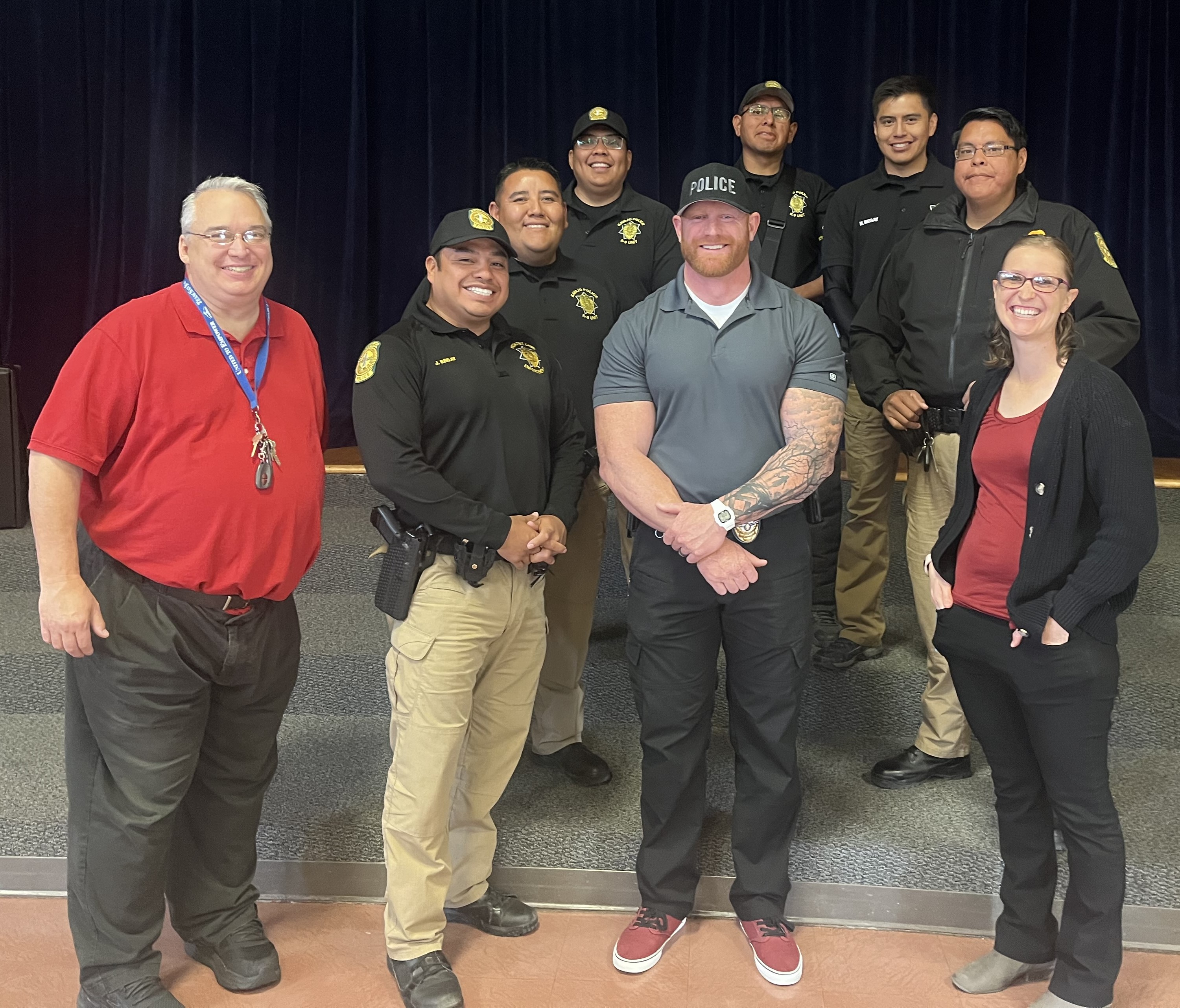
B.E.S would like to sincerely thank Rory Atcitty, Police Lieutenant, the Navajo Police Department Special Operations Division and Officer Palmer for an amazing Red Ribbon Week assembly! We all appreciate your time and hard work!!!!!!!!
WATCH D.O.G.S
B.E.S would like to sincerely thank all our dads who took their time to support our students, school, and community! We had an unbelievable turnout, which included 300 dads and students, who arrived at 8:30 a.m. this morning. A D.O.G.S’s day begins by enjoying some doughnuts and juice with our staff and kiddos, along with a brief orientation where D.O.G.S receive a detailed schedule for the day. These amazing dads are kept busy in classrooms, working with small groups of students, helping teachers with special projects as well as other creative lessons. Later D.O.G.S hang out in the cafeteria with the students, enjoy lunch with their own children and spend time at recess getting to know the kids. You may even find them joining in on a game of basketball or four squares. The day ends around 1:05 p.m. with a program survey, a reminder calls to the next WATCH D.O.G.S. It is most definitely an exciting busy and rewarding day.
Thank you!
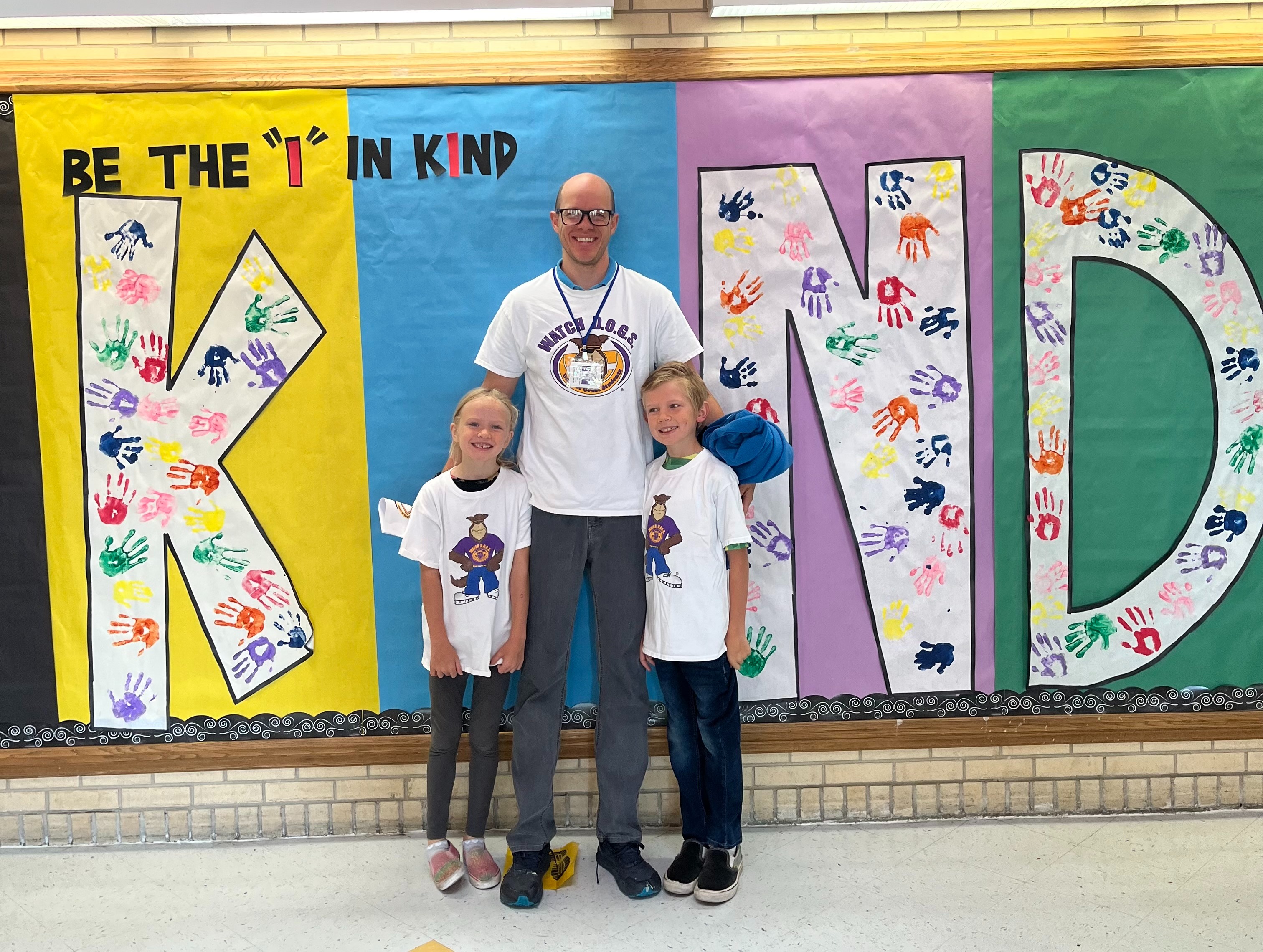
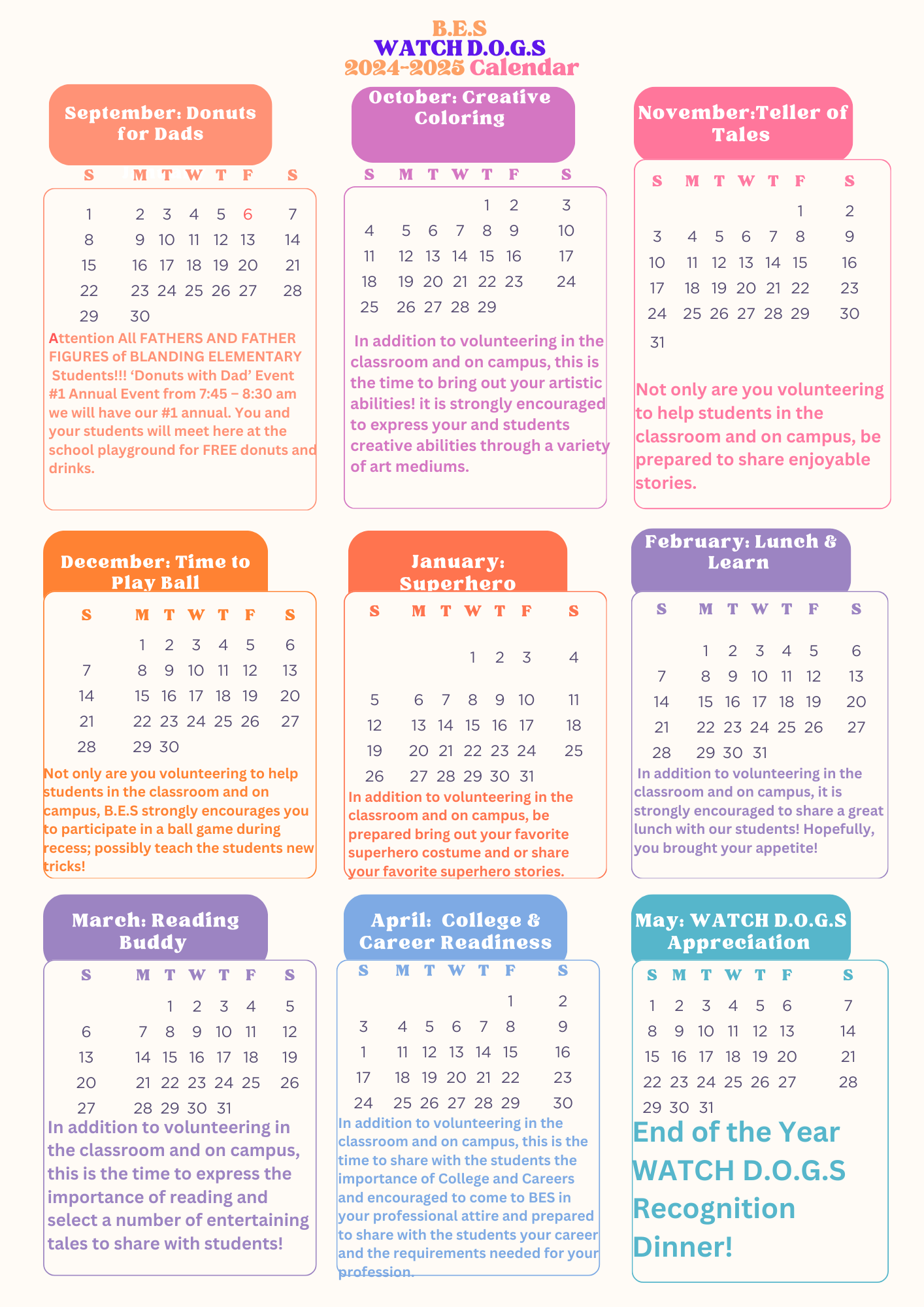
BES HOUSES
BES HOUSES: Throughout the school year, kids earn points for their houses for good behavior, special accomplishments, and more. Since each house includes kids from every grade, it fosters a sense of community throughout the school, too.
It is our desire to nourish and sustain a school culture that extends through our students and staff to our families and the community we serve to develop within our school a sense of belonging, responsibility, respect, and pride. Our houses create for students' opportunities for improving attendance, leadership, mentoring, service, and competition through academics and activities.
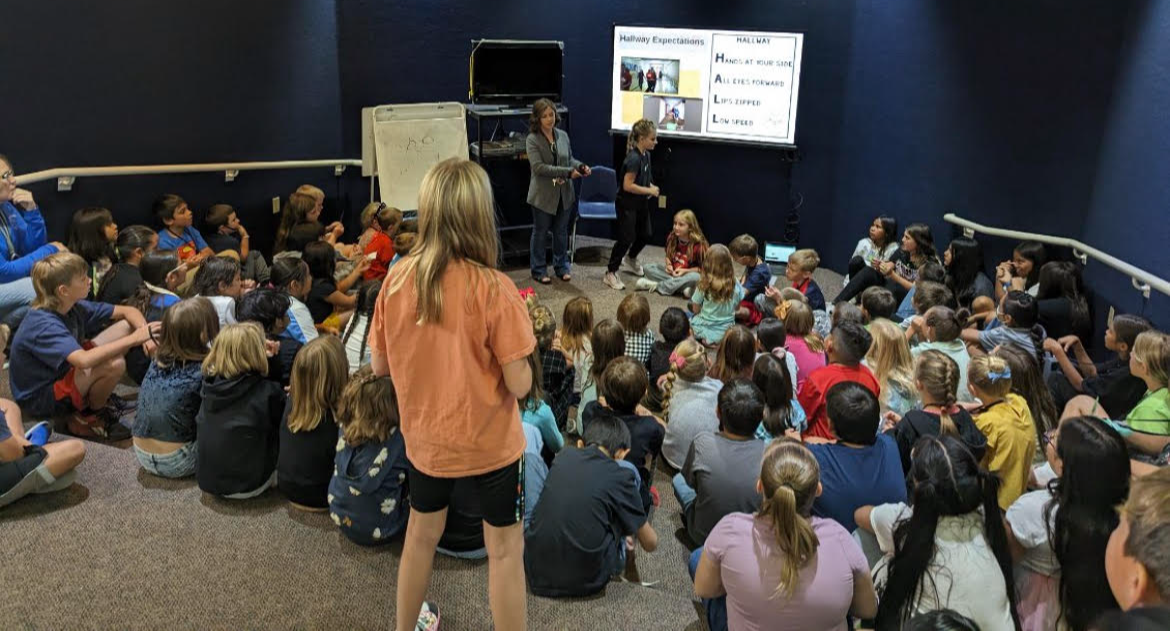

Attendance Tips for Parents
Let Children Know that Good Attendance Is Important:
Attendance is a parent and student responsibility. Let your child know that you think attending school daily is important. Show them you are interested in their school activities and tell them that you want them to do well in school.
Establish a Routine:
Give yourself and children enough time to get ready. No TV on school mornings. Provide students their own alarm clock. Teach kids to set and use their own alarm clock or clock radio. Set alarm clock 30 minutes earlier for students who need more time to get ready for school. Plan ahead the night before: such as identifying and pre-prepping breakfast, have kids choose clothes and shoes the night before, and pack their backpacks with completed homework and snacks/water.
Show Interest in Student’s Activities:
Attend Parent Teacher Conferences Attend Back to School Night and Parent Meetings Volunteer in the classroom, on field trips or during school events. Make education a family priority.
Keep Open Lines of Communication with your Children, Teacher, Principal and School Attendance Office:
Let the school know in advance if your child is going to be absent or if you have concerns about your child’s attendance or school performance. Report all absences on the day the student will miss school by calling the attendance office or line.
·Do not let your child persuade you into making an excuse for him/her. Don’t give up. Reward good behavior and take it one day at a time.
Parental Involvement in Your Child’s Education - The Annie E. Casey Foundation (aecf.org)
DO GRADES MATTER?
6-12 years old is the golden age for the cultivation and development of children’s learning abilities (attention and memory, reading and recitation ability). In the six years of primary school, it can be said that there is nothing better than learning in public schools. Ability is more important. In fact, there are no real poor students in elementary school, and there are no absolute outstanding students. As long as the learning ability improves, it is a magic weapon for children to improve their grades in middle and high school, have great strength, latecomer, and unlimited potential.
Human brain development completes 70-80% at the age of 0-3, completes the remaining 10% at the age of 3-6, and completes the remaining 10% at the age of 6-12. Primary school is the best and final period for improving learning ability.
Training at the age of 6-8 will increase
children’s learning ability by
80-90%;
Training at the age of 9-10 can improve learning ability by 60-
70%;
Last, training at the age of 11-12 improves learning ability by
40-
50%
The younger the age, the more obvious the lifting effect. Having super learning ability lays a solid foundation for a child’s life, so the learning ability of a primary school student determines his life’s results!
10 Ways to Help Your Child Succeed in Elementary School
Go to Back-to-School Night and Parent-
Teacher Conferences
Visit the School and Its Website
Support Homework Expectations
Send Your Child to School Ready to Learn
Teach Organization Skills & Study Skills:
Gather and organize all work materials before beginning to study.
Establish a consistent study time and routine.
Develop a positive attitude and consider schoolwork important.
Review information covered in class each day, even if there is no assigned homework.
Know the Disciplinary Policies
Get Involved
Take Attendance Seriously
Talk About School
B.E.S Academic Portfolio
What is an Academic Portfolio (ePortfolio)?
We are focusing on foundational skills with the 5th-grade students, helping them develop their Academic Portfolios. These portfolios will allow them to organize and store their Self-Awareness reflections, as well as Math, Language Arts, and Science assignments and projects in a structured way.
The introduction of the Academic Portfolio is an exciting new step, and we hope it will be a successful tool for students this year.
The Academic Portfolio is designed to encourage creativity and allow students to showcase their best work throughout grades 5-12. In addition to being a valuable resource during their school years, the portfolios can be used for future opportunities such as college, university, or trade school admissions, and even employment. For example, students can include videos demonstrating skills like welding, sports achievements, or artistic projects. It’s also a great way for students to take ownership of their learning, build self-esteem, stay motivated, and for parents and guardians to stay informed about their academic progress.
Thank you once again for your time and continued support!
Best regards,


